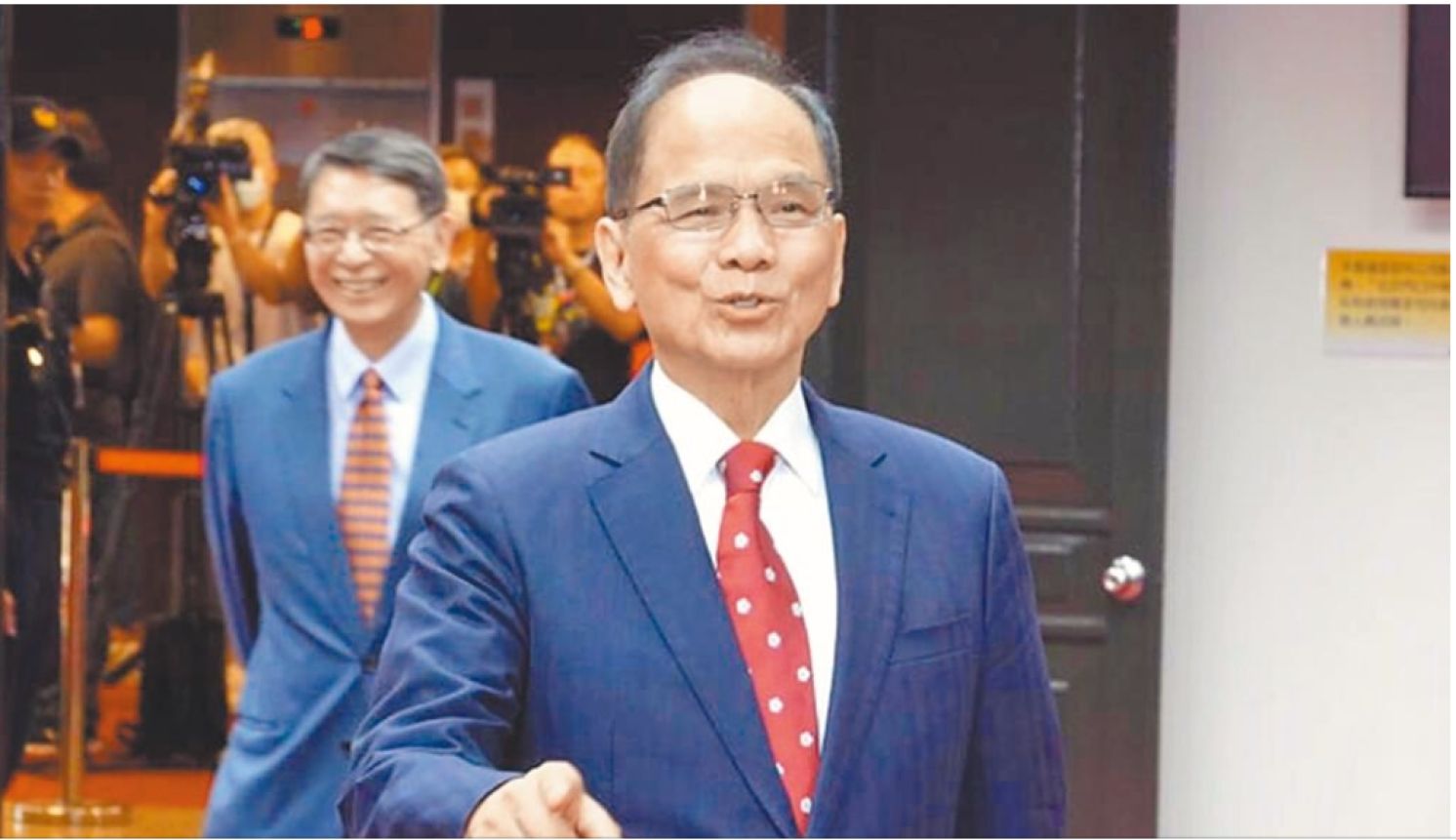
Series of Espionage Scandals Reveals Spies Are Actually DPP Members
China Times Commentary, April 4, 2025
Legislator Ker Chien-ming, whip of the Democratic Progressive Party (DPP) caucus of the Legislative Yuan, repeatedly declared that those who do not support the mass recall movement are all Communist spies. Kuomintang (KMT) lawmakers facing recall efforts are frequently labeled as "pro-communist traitors." Now, with a series of espionage scandals erupting within the DPP itself, it turns out that the so-called "spies" were from their own ranks. Not only has the myth of "counter China to protect Taiwan" crumbled, but some of these spies were even actively involved in the recall campaigns—further undermining the legitimacy of these movements. Otherwise, wouldn't supporting the recall mean colluding with communist agents?
The clearest case so far involves Sheng Chuying, former assistant to Legislative Yuan Speaker Yu Shyi-kun. Investigators found he was recruited by mainland Chinese intelligence and allegedly accepted over NT$1 million in bribes; he was released on bail for NT$200,000 (about US$6,031). Additionally, a former assistant from Legislator Hsu Chih-chieh's office is under investigation after suspicious travel to Macau.
Moreover, KMT Legislator Lo Chih-Chiang accused a former presidential advisor, who served under then-Vice President Lai Ching-te, of being involved in an espionage case and is currently under detention. If true, it means a spy was embedded inside the Office of the President itself. Recently, President Lai labeled China as a "foreign hostile force" and announced 17 measures to strengthen national security against infiltration. Yet now, a spy has been discovered within his inner circle. Shouldn't President Lai publicly apologize to the people?
Even more alarming, Sheng not only served as an assistant to the Legislative Yuan President but also worked for DPP legislators Kuo Yu-chin, Lo Mei-ling, and Hsu Chih-chieh, moving fluidly among major DPP factions. He even represented the DPP at delegations to the United States, potentially leaking legislative and party secrets—and possibly sensitive information on U.S.-Taiwan cooperation—posing a serious national security threat. Despite this, prosecutors merely released him on bail, in stark contrast to how they harshly handle espionage cases involving the opposition. Are DPP spies somehow exempt from President Lai's national security crackdown?
More outrageously, Sheng actively participated in Ker Chien-ming's large-scale recall movement, joining the "United to Oust Liao Hsien-hsiang" campaign against a KMT legislator. Netizens posted images showing pro-recall materials where both tycoon Robert Tsao and "spy" Sheng appear together. Tsao, who led the recall effort against KMT Legislator Hsu Chiao-hsin, accused Hsu of being a member of the Chinese underground party. No wonder netizens mock the mass recall as an alliance between "bedfellows" and "fellow travelers" with the Chinese Communist Party: resisting China by day, cozying up to it by night?
For years, "counter China to protect Taiwan" has been a political slogan for the DPP, while accusing opponents of "selling out Taiwan" has been their exclusive political franchise, reaping massive political and financial gains. Whenever opposition figures were suspected of espionage, the DPP would demand harsh punishments and brand them as "communist collaborators." Yet when their own people are exposed to espionage scandals, they attempt to downplay or cover up the truth—revealing the DPP's blatant double standards.
The ultimate irony is that Legislator Ker once declared that anyone not supporting the recall efforts was a communist spy. Now, with the DPP itself riddled with espionage scandals, if they continue to use "resisting China" as a political smokescreen while pushing recall campaigns tainted by communist agents, the public will inevitably reconsider: who are the real fellow travelers of the Chinese Communist Party? Otherwise, with Premier Cho Jung-tai leading the government to waste public funds promoting recall movements infiltrated by spies, aren't they essentially aiding Beijing's goal of unifying Taiwan?
From:https://www.chinatimes.com/newspapers/20250404000373-260109?chdtv
〈Back to Taiwan Weekly Newsletter〉